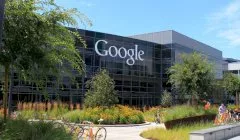Earn
How to make money with blog advertising
Many people think of starting a blog so that they can earn lots of money by advertising through their blog. However, blog advertising isn’t as simple as joining an ad network and reaping generous rewards – there are many types of blog advertising to choose from and not all ads are equal.
How to make money with blog advertising
Many people think of starting a blog so that they can earn lots of money by advertising through their blog. However, blog advertising isn’t as simple as joining an ad network and reaping generous rewards – there are many types of blog advertising to choose from and not all ads are equal.

It’s best to learn about the different blog advertising option you have before launching and monetising your own blog.
Here’s what you need to know in order to start making money with blog advertising.
What is blog advertising?
Blog advertising is an income-generating strategy that bloggers implement to earn money from their blog.
It’s basically putting up various types and sizes of advertisements in certain areas of your blog, such as banner ads on your blog’s header or sidebars. Everytime a user interacts with the ad, you may receive a fee. However, the amount you receive and its frequency of earning money depends on the type of ad that was installed.

Ways to make money with blog advertising
There are a variety of ways to earn an income stream with blog advertising. You may consider a strategy in which your income depends on your reader’s interaction with the posted advertisement – be it per click, per thousand impressions or per every action completed.
You may also promote another company’s products and/or services as an affiliate so that you earn a commission for each sale the company earns through your blog. Likewise, you may also directly enter into a contract with advertisers for a fixed fee.
Types of advertising
- What is pay-per-click advertising and how does it work?
- What is pay-per-impression advertising and how does it work?
- What is pay-per-action advertising and how does it work?
Pay-per-click
Pay-per-click (PPC) or cost-per-click (CPC) is a paid search marketing advertising model wherein the site owner gets paid a certain amount of money each time a user clicks an ad on their site.
You may earn a few cents to over a hundred dollars for every user who clicks the ad that is displayed on your blog posts. However, the actual amount you earn depends on the ad networks you join, as well as the set-up and type of ad that is displayed.
Below are different types of pay-per-click advertising that you may wish to consider:
- Paid search marketing
Paid search marketing refers to the strategy wherein you – the advertiser – will bid for certain keywords related to your blog. If you win the bid, the search engine will put you on top of the page as part of the sponsored content whenever a user enters the keywords and you will pay the search engine a fee when the user clicks on it. - Display advertising
Display advertising refers to the use of graphic media in your blog and social networking sites. These may be in the form of banner ads, interstitials and other forms of advertisement. - Social media advertising
As its name suggests, social media advertising makes use of social networking sites such as Facebook or Twitter to reach out to your target demographic. - Retargeting PPC advertising
Retargeting is a strategy that requires you to tag each visitor that interacts with your blog – who have potentially expressed interest in your content, products or services – and displaying your ads to them in other sites.
This can be an effective way to make a conversion (i.e. sale, subscription, etc.) since the tagged users have already shown an interest in what you’re offering. - Price comparison website advertising
If you have tough competitors on the products you offer in your blog, you may consider advertising in comparison websites, especially if you’re offering a better deal but simply lack visibility. - Affiliate marketing
Affiliate marketing refers to the strategy that allows bloggers and other media personality to receive commissions for the products they promote if their users click a unique link and results in a conversion or sale.
Google AdSense
To start making money from Google AdSense ads, you simply have to sign up and complete the tasks to connect your blog to AdSense. Ensure that your blog complies with the Google AdSense program policies because Google will review your blog’s compliance to its policies before fully activating your account.
If you implement any of the strategies above through Google AdSense, you won’t have to search for ads to put up on your blog or other sites that will market your products and services – Google will do it for you.
But how does AdSense work?
According to Google, “AdSense works by matching text and display ads to your site based on your content and visitors. The ads are created and paid for by advertisers who want to promote their products.”
You simply have to make ad spaces available on your blog by typing a code and Google will handle the process of auctioning your ad space to advertisers and billing them according to the type of ad that was put up.
If you don’t want to sign up with Google AdSense, you may consider these alternatives:
- Media.net
- PropellerAds Media
- RevContent
- PopAds
- Infolinks
- Adsterra
- PopCash
- Evadav
- Yllix Media
- Amazon Associates
Pay-per-impression
Pay-per-impression, also called pay-per-mille (PPM) or cost-per-mille (CPM), is a strategy that pays you for every one thousand impressions that an advertisement displayed on your blog gets.
This means that you get paid the amount that was promised for every one thousand users that sees the advertisement – they don’t necessarily have to click on it or make a purchase.
Pay-per-action
As its name suggests, the pay-per-action (PPA) or cost-per-conversion (CPC) advertisements require your visitor to complete an action before you get paid the contracted amount. For instance, the advertiser may require that the user watches the entirety of a 30-second video advertisement.
If your reader completes this action, you will get paid.
It’s important to note, however, that solely relying on PPC, PPM and PPA may not result in earning lots of money for your blog. If you started a blog to serve as a supplementary or replacement income stream, consider joining an affiliate program.
Affiliate marketing
Affiliate marketing refers to a marketing strategy that allows bloggers and other media personality to receive commissions for the products they promote.
To earn from this strategy, simply sign up for an appropriate affiliate program and create content to promote the advertiser’s product. Make sure to provide the affiliate link that the advertiser provides because traffic coming from your unique link will determine whether you will earn a commission.
Sponsored post
You may also consider creating sponsored content in your blog.
Sponsored posts are advertisements that are meant to blend in with the environment, which means that these will come in the form of a blog post or any other type of content you publish on your blog.
Likewise, the advertiser may simply create a content similar to your posts and all you have to do is to publish it on your blog without any changes.
Income from sponsored posts depends on the agreement between the blog owner or influencer and advertiser. Some influencers get paid hundreds, thousands or even over a hundred thousand dollars to publish sponsored content on their blog.
Explore Nest Egg to learn more earning strategies.
About the author

About the author


Digital marketing
Influencer discussions on AI bubble surge 200% on X as concerns grow over massive investments
In a dramatic shift in online discourse, discussions surrounding the so-called "AI bubble" have surged by nearly 200% on the social media platform X during October 2025, according to GlobalData, a ...Read more

Digital marketing
Nvidia's $100 billion investment in OpenAI poised to transform AI landscape
A monumental partnership between OpenAI and Nvidia has become the focal point of discussions among technology influencers, with the latter committing up to $100 billion in a strategic collaborationRead more
Digital marketing
Facebook reaches deal with government, vows to restore news
Facebook intends to restore Australian news pages in the coming days, Treasurer Josh Frydenberg confirmed on Tuesday. Read more

Digital marketing
Facebook blocks access to health and emergency services
UPDATE: Facebook has confirmed for nestegg that while government pages "should not" be impacted, it has taken a broad definition of news content "in order to respect the law as drafted". Read more
Digital marketing
Facebook bans news sharing and viewing in Australia
Aussies will no longer be able to share or view local or international news content on Facebook, with the social media giant announcing late on Wednesday that it will restrict “publishers and people ...Read more

Digital marketing
Google’s threat to wave goodbye heats up calls for regulation
With the war between Google and Australia now in danger of seeing the search engine giant depart our shores, not everyone is certain the government should back down, with one expert urging it to stand ...Read more

Digital marketing
Consumers force brands to align with social causes
With consumers increasingly embracing social causes, their expectations of the products and brands they buy have altered significantly over the past few years. Read more

Digital marketing
Government called to toughen rules for big tech amid free speech debate
Australia is being urged to implement rules that require social media platforms to be transparent when closing someone’s account and offer a way for them to appeal it. However, politicians are being ...Read more

Digital marketing
Influencer discussions on AI bubble surge 200% on X as concerns grow over massive investments
In a dramatic shift in online discourse, discussions surrounding the so-called "AI bubble" have surged by nearly 200% on the social media platform X during October 2025, according to GlobalData, a ...Read more

Digital marketing
Nvidia's $100 billion investment in OpenAI poised to transform AI landscape
A monumental partnership between OpenAI and Nvidia has become the focal point of discussions among technology influencers, with the latter committing up to $100 billion in a strategic collaborationRead more
Digital marketing
Facebook reaches deal with government, vows to restore news
Facebook intends to restore Australian news pages in the coming days, Treasurer Josh Frydenberg confirmed on Tuesday. Read more

Digital marketing
Facebook blocks access to health and emergency services
UPDATE: Facebook has confirmed for nestegg that while government pages "should not" be impacted, it has taken a broad definition of news content "in order to respect the law as drafted". Read more
Digital marketing
Facebook bans news sharing and viewing in Australia
Aussies will no longer be able to share or view local or international news content on Facebook, with the social media giant announcing late on Wednesday that it will restrict “publishers and people ...Read more

Digital marketing
Google’s threat to wave goodbye heats up calls for regulation
With the war between Google and Australia now in danger of seeing the search engine giant depart our shores, not everyone is certain the government should back down, with one expert urging it to stand ...Read more

Digital marketing
Consumers force brands to align with social causes
With consumers increasingly embracing social causes, their expectations of the products and brands they buy have altered significantly over the past few years. Read more

Digital marketing
Government called to toughen rules for big tech amid free speech debate
Australia is being urged to implement rules that require social media platforms to be transparent when closing someone’s account and offer a way for them to appeal it. However, politicians are being ...Read more








